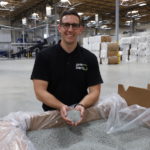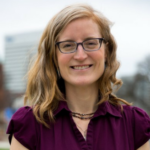SPC Impact 2020
Mar 31, 2020 - Apr 2, 2020 Austin, Texas
Program
7:00 am - 5:00 pm ET
Registration and Check-In
 Mar 31st
Mar 31st
8:00 am - 12:00 pm ET
Tour: Texas Disposal Systems
What if there was a better way to manage resources and be a waste service provider? Texas Disposal Systems processes more than 3,000 tons of solid waste daily, including trash, recycling and composting. It is also home to the TDS Exotic Game Ranch, a facility that houses more than 115 species of animals as a living example of co-existence with a state-of-the-art, fully integrated landfill facility.
TDS will be providing a three-hour tour of their facility, including a presentation and bus tour to visit the landfill, the Materials Recovery Facility, large-scale composting facilities and, of course, the animals that live at the TDS Ranch.
Join us to see how TDS creates a noticeably different, noticeably better solution for waste in Central Texas!
Schedule:
8:00 am – Depart Hotel
8:30 am – Arrival
8:45 am – Presentation
9:30 am – Tour Begins
11:30 am – Tour Ends
12:00 pm – Return to Hotel
Tickets: $30 each
Space Is Limited
Please select this add-on at registration checkout to attend8:15 am - 10:15 am ET
Session: Fighting Grocery Food Waste with Best Practices and Innovation
Speakers
Olga Kachook
Sustainable Packaging Coalition
Brent Kawamura
PCC Community Markets
Wayne Koeckeritz
Eco-Products
Jessica Vieira
Apeel Sciences
Grocery retailers contribute to 40% of food waste coming from consumer-facing businesses in the US, an estimated 18.2 billion dollar opportunity. As grocery stores expand their selection of prepared and hot foods, more customers dining on-premise also means more post-consumer food scraps, a new and rapidly expanding waste stream for many retailers.We’ll discuss best practices for reducing both pre-consumer and post-consumer food waste in the grocery retail environment, and for diverting food waste from landfills with the help of composting programs. Innovations in packaging that prevent spoilage, standardized date labeling, and discounted imperfect produce can drive down costs and engage consumers in food waste prevention. We’ll also look at how compostable packaging can be used to capture more food scraps from customers dining in-store.This session will arm you with the tools to successfully manage one of our most important wasted resources. Experts from a leading regional co-op, food technology provider, and compostable packaging manufacturer will share their insights in lively discussions in the second half of this knowledge café.
8:30 am - 12:00 pm ET
Chemical Recycling Morning
Speakers
Adam Gendell
Sustainable Packaging Coalition
Kaleigh Reno
Sustainable Packaging Coalition
Ellen Martin
UC Berkeley
8:30 – 9:15 am | Essentials of Sustainable Packaging: Chemical Recycling
This session will offer an introduction to the emerging chemical recycling technologies for plastics, with insights into how these technologies intersect with packaging and the mechanical recycling system. We’ll discuss some of the key trends and drivers influencing the conversation about chemical recycling, review the basics of polymer chemistry, with a focus on characteristics that affect recyclability, and learn about the purification, decomposition, and conversion technologies that are in use today.
Tristanne Davis, Senior Manager SPC, GreenBlue and Kaleigh Nicastro, Project Associate SPC, GreenBlue
9:15 – 10:30 am | Masterclass: Defining Chemical Recycling – What do these technologies do? How do we use them to make the most of the resources we have?
This session will introduce participants to the fundamental processes involved in “chemically recycling” plastics, with real-life examples of how these are being applied to transform plastic packaging waste into like-new plastics and more. We’ll also look at how technology providers are integrating into existing plastics production and recycling systems, unpack the challenges, and explore the opportunities to scale them for a more sustainable packaging future.
Ellen Martin, Circular Economy Advisor and Lecturer, UC Berkeley
10:45 am – 12:00 pm | MMRF Collaborative Workshop on Chemical Recycling (for members of SPC’s Multi Material Flexible Packaging Recovery Collaborative)
What is the waste hierarchy for multi material films? Is chemical recycling particularly important for bringing this packaging into the circular economy? Expanding on the topics introduced earlier in the day on chemical recycling, this workshop will explore these questions for multi material polyolefin flexible packaging.
*While this workshop is open to everyone, please note this is a deep dive working session for Collaborative members.
Tristanne Davis, Senior Manager SPC, GreenBlue and Adam Gendell, Associate Director SPC, GreenBlue
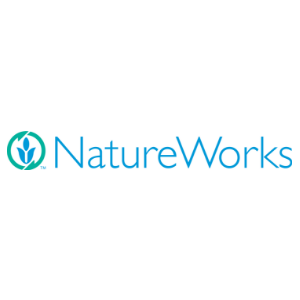
 Mar 31st
Mar 31st
8:30 am - 11:00 am ET
Tour: Balcones Resources
A short classroom session will be followed by a 30 minute tour of Balcones’ state of the art recycling facility. The facility processes 35 tons per hour of single stream recyclables and utilizes an equipment configuration that includes several optical sorters and robots. The tour will be followed by a short question and answer session. Safety gear will be provided.
Please Note: Closed-toe shoes are required. No photographs allowed without permission.
Schedule:
8:20 am: Gather in AT&T Hotel and Conference Center lobby for departure
8:30 am: Departure from hotel
9:00 am: Tour starts
10:00 am: Tour ends and departure back to event venue
11:00 am: Approximate arrival back to AT&T Hotel and Conference Center
Tickets: $30 each
Space Is Limited
Please select this add-on at registration checkout to attend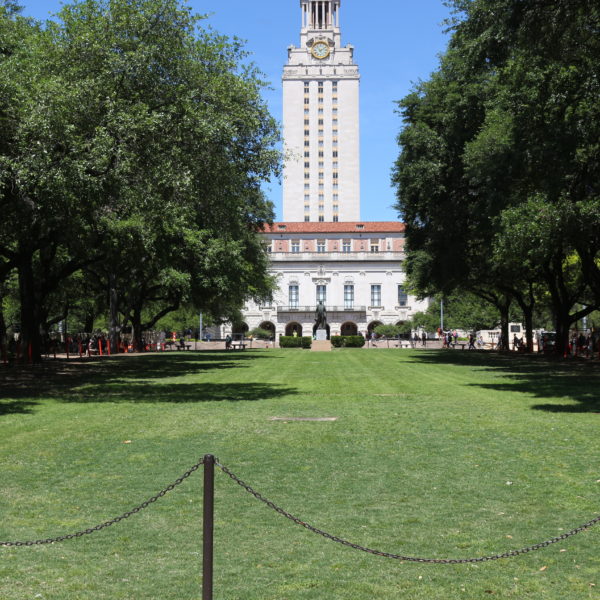 Mar 31st
Mar 31st
8:50 am - 11:00 am ET
Tour: UT Austin Campus Sustainability
Join the University of Texas Austin Sustainability office and staff responsible for Zero Waste Initiatives with fellow SPC Impact Attendees on a guided walking tour of the campus departing from the hotel main lobby. This sustainability centered tour will include a visit to the Jester Dining Hall and highlights of the green campus tour and sustainability initiatives like these examples.
Schedule:
8:50 am: Meet in AT&T Hotel Lobby
9:00 am: Tour Starts
11:00 am: Tour Ends back at AT& Hotel Lobby
Space Is Limited
Please select this add-on at registration checkout to attend Mar 31st
Mar 31st
9:00 am - 9:45 am ET
Tour: AT&T Back of House Tour with Hotel General Manager
Have you ever wondered how a hotel deals with all the waste that is generated in food service and preparation? Join us for a tour of some of the key areas that impact a day in the life of sustainability at the AT&T Hotel and Conference Center. Let by the hotel General Manager, this tour will give some insights into what processes are employed, the tools that are used and the kinds of partners needed to make waste reduction a meaningful experience. Up to 10 people may join this tour. Please wear appropriate footwear for an active back of the house setting.
Please meet at event registration area – tour will depart at 9:00 am sharp.
Space Is Limited
Please select this add-on at registration checkout to attend9:00 am - 12:00 pm ET
Ideas Lab: Leveraging Design Factors to Optimize Sustainability Messaging
Speakers
This interactive session will be centered at the intersection of sustainability, carton design, and human factors psychology. Attendees will leave with insights and learnings on how to:
- Organize visual information for desired communication hierarchy
- Identify placement of key visual elements
- Evaluate the propositional density of a design
- Determine the ratio of primary and secondary information on a display panel
- Develop on-pack sustainability messaging
- Ideate on methods to educate consumers on sustainable value propositions.
This collaborative Ideas Lab encourages attendees to bring their own packaging for analysis, use the provided tools and workbooks to asses provided packaging, and learn what Quad and Packaging InSight have discovered across a variety of consumer packaging eye tracking research studies.
9:00 am - 11:00 am ET
Masterclass: Beyond Information to Action, Fostering Sustainable Behavior Change
Speakers
Jennifer Tabanico
Action Research
Corporations are increasingly tasked with addressing significant environmental sustainability concerns such as natural resource depletion, air quality and marine debris. Without exception, the success of any sustainability effort hinges on behavior change on the part of individuals. Community-based social marketing (CBSM) has emerged as an effective approach for developing and revitalizing strategies that achieve measurable behavior change. CBSM is an evidence-based process that goes beyond knowledge and awareness raising to remove barriers, increase motivation and change behavior through the application of social science tools. The session will include case studies to demonstrate the theoretical foundations and guidance for how to apply the process in corporate, consumer and industry contexts.
9:00 am - 10:00 am ET
Masterclass: Industry Sustainability and Establishing FDA Status for Recycled Plastics in Food Packaging
Speakers
Mitzi Ng Clark
Keller and Heckman
Dr. Mark Hepp
Keller and Heckman
There is an emphasis throughout the United States and globally on increasing the uses of recycled plastic. This masterclass brings together the country’s leading experts on qualifying plastic recycling systems for producing suitably pure flake and pellets for use in food packaging applications. Options for qualifying secondary and tertiary (chemical) recycling systems will be explained for a range of feedstocks including recycled PET, HDPE, LDPE, PP, and styrene. A technical walk-through of FDA’s challenge testing will be provided. The session will wrap up with insights on what’s happening in Europe and approaches for qualifying global supply streams as suitable for U.S. packaging applications.
9:00 am - 11:00 am ET
Masterclasses: Forest Products
Speakers
Tom Pollock
Sustainable Packaging Coalition
Shea Wales
Sustainable Packaging Coalition
Luis Rochartre
WBCSD
Brad Kelley
Gershman, Brickner & Bratton, Inc
9:00 – 9:30 am | Including “Verified” with Recycled and Certified for 100% Sustainable Sourcing
More and more companies are expanding their definitions of 100% sustainable sources by including “verified” as part of the picture. Reasons include limited supply of recycled material and limitations of forest certification to reach certain regions and forest owners. Learn more about this Forest Products Group project and how you can use verified working with customers, stakeholders, and for your own sustainability goals.
Tom Pollock, Senior Manager Forest Products, GreenBlue and Shea Wales, Project Associate, GreenBlue
9:30 – 10:00 am | What Does the Future Look Like for Paper Recycling
There are a number of emerging trends that are going to reshape the landscape paper recycling. Artificial intelligence, robotics, the rapid growth of e-commerce. How will all these factors impact an already challenging market for recovered materials? What are the various scenarios that could play out? And how might this affect your business?
Brad Kelley, Senior Project Engineer at Gershman, Brickner & Bratton, Inc.
10:00 – 10:30 am | Sourcing Fiber for Packaging in Regions of High Risk
Sourcing wood fiber for packaging in certain regions of the world brings a unique set of challenges. In regions such as Southeast Asia, South America, and Africa there is enormous pressure and challenges for forests. And while we know it is important to source responsibly, what exactly does this mean for these regions at so much risk? What can companies do to understand this risk and potentially even have a positive influence? This masterclass will address what you need to know about sourcing overseas and how to use this knowledge for creating positive impact.
Luis Rochartre, Director, Forest Solutions Group, WBCSD
9:00 am - 10:30 am ET
Masterclasses: Material Health
Speakers
Dr. Tom Bruton
Green Science Policy Institute
Dr. Lauren Heine
ChemForward and Northwest Green Chemistry
9:00 – 9:30 am | Opportunities to Remove or Reduce Inadvertent PCB (iPCB) Pigments in Packaging
Inadvertent polychlorinated biphenyls (iPCBs) are created unintentionally in the synthesis of other materials and have been identified in various pigments and inks used for printing and packaging. These iPCBs end up in our water and the environment where they can negatively impact human and ecological health. Recycling materials with these pigments and inks results in concentrated effluent and additional regulatory compliance problems. Awareness of these issues is spreading as safer and more sustainable alternatives are identified. This presentation will help you understand how iPCBs are created, why iPCBs are problematic, and what you can do to improve the situation through company procurement policies, supply chain engagement, and compliance. The presentation will also provide you with a policy template and a list of questions to ask suppliers.
Dr. Lauren Heine, Senior Science Advisor, Northwest Green Chemistry
9:30 – 10:30 am | PFAS in Food Packaging: Peeling Back the Wrapper
Chemicals called PFAS have been in the news for contaminating water suppliers, but what does this have to do with compostable take-out containers and other packaging? This presentation will provide an overview of this and other key questions surrounding the use of these “forever chemicals” in food packaging. Topics will include why and how PFAS are used, human exposure and environmental concerns, analytical techniques for measuring PFAS, increasing demand for alternatives from purchasers and retailers, and the regulatory landscape. Come learn what you need to know to help your organization stay ahead of the curve on this emerging issue.
Dr. Tom Bruton, Senior Scientist, Green Policy Institute
10:30 am - 12:00 pm ET
Retailers’ Roundtable
Speakers
Kelly Cramer
Sustainable Packaging Coalition
The Retailers’ Roundtable will bring together retailers who share a similar mission around sustainable packaging to discuss these topics and to identify tools to help retailers tackle shared challenges, like design for recyclability and how to source more recycled content. Participants will engage in a workshop-like discussion about select topics that impact retailers in particular, like how to most effectively engage private label suppliers on packaging design. This event will be a catalyst for future engagements and conversations for the retailer community.
Note that this session is available to retailers only and space is limited. To request an invitation, reach out to Lauren Rowell at lauren.rowell@greenblue.org.
Only two representatives per company will be allotted an invitation at this time. If you would like more than two representatives, we will hold invitations on a waitlist and release any open spaces one week prior to the event. Thank you for understanding!
11:00 am - 12:00 pm ET
Masterclass: Understanding the Options for Organics Recycling of Sustainable Packaging
Speakers
Sam Deconinck
OWS
This masterclass will explain the options available for organic recycling of packaging and the test methods used to determine the suitability of the packaging materials being used. Just like “recyclable” encompasses a broad range of mechanical and thermal processes, biologically degradable plastics can be recycled using a variety of processes including but well beyond industrial composting. Growth in packages suitable for organics recycling will depend both upon increased availability of suitable biopolymers as well as an organic/biological recycling industry that is sufficiently equipped to mechanically and biologically convert them – while accommodating a transition period that includes inherent co-mingling with non-degradable plastics.
11:00 am - 12:00 pm ET
Digital Print in Packaging and its Implications for Sustainable Packaging
Speakers
Learn how ePac Flexible Packaging; HP, Inc.; and Kezzler are working together to make our world more sustainable through the use of digital printing technology and loT software. From energy use to ozone creation, the impact of print on demand and the ability to interactively track discarded plastic packaging from the consumer all the way through to reuse, digital printing offers new answers to the sustainability problems we are faced with today.
11:00 am - 12:00 pm ET
Next Markets Collaborative Led Session: The Real World Implications of Using Recycled Content for Food Contact
Speakers
Dylan de Thomas
The Recycling Partnership
Patrick Keenan
Annie's
Using Post Consumer Recycled Content (PCR) for food contact packaging can seem hard to do, but these three panelists do it every day. Learn about how a plastics reclaimer with an FDA
“Letter of No Objection,” which acknowledges a company’s ability to process PCR suitable for food contact, implements the technology approved under the letter and how two brands incorporate PCR resin into their packaging. This session will explore the challenges and benefits associated with using PCR for food contact.
11:00 am - 12:00 pm ET
Panel: Faster, Better, Easier – At the Intersection of Convenience, Sustainability and Tech in Food Delivery
Speakers
Food delivery methods have evolved, diversified and become more sophisticated, driven by consumers’ expectations, technology and accessibility. In this session panelists will share their take on sustainable innovation and how tech can help meet convenience, decrease food waste and increase recovery.
12:00 pm - 1:00 pm ET
Birds of a Feather Lunch
Speakers
Garry Kohl
PepsiCo
Megan Robison
Printpack
Ashley Leidolf
Dow Packaging & Plastics
Cherish Miller
Revolution
Paul Nowak
GreenBlue
Carolyn Klindt
Anthesis Group
Dan Healey
Sealed Air
Join our Executive Committee and SPC staff in lively conversations around a specific topic of interest. Please email olivia.vermooten@greenblue.org to reserve your spot.
Table 1 – (FULL) Garry Kohl, PepsiCo: The Future of Flexible Packaging
Table 2 – Megan Robison, Printpack: The Bottom Line – How Do We Address the “Cost Neutral” Need From Brands Wanting Sustainable Packaging?
Table 3 – Cherish Miller, Revolution: Rethinking the Meaning of Using PCR in Consumer Products – How do we get consumers overall to see that as a positive it may look different?
Table 4 – Paul Nowak, Quad: Engaging Your Organization’s Internal Sustainability Champions to Accelerate Change
Table 5 – Carolyn Klindt, Danone: The Role of Bioresins and Renewable Materials
Table 6 – Dan Healey, Sealed Air: Getting Beyond “Is it Recyclable” – Engaging Consumers in the Circularity Conversation
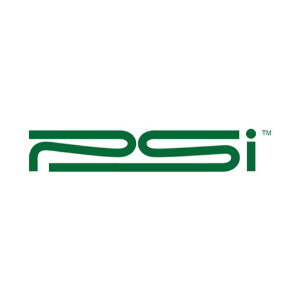
12:00 pm - 1:00 pm ET
General Lunch

1:00 pm - 1:30 pm ET
Time to visit the Exhibits
1:30 pm - 3:20 pm ET
Opening Plenary: Rethinking Purpose
Speakers
Nina Goodrich
Sustainable Packaging Coalition
Dr. Jonathan Foley
Project Drawdown
Suzanne Shelton
Shelton Group
Mike Werner
The traditional purpose of corporations making business, advancing the economy, producing products or services and generating a profit is being reevaluated in light of the huge, complex challenges of climate change, the urgency to address major environmental sustainability issues such as depletion of resources and marine pollution, and hyper consumer awareness. Sustainable Packaging is an immensely important challenge and an area of great innovation. SPC Impact 2020 will find packaging’s place in this big jigsaw puzzle, addressing its important role, beyond corporate, brand and customer initiatives.
1:30 – 2:00 pm | Opening Remarks
Nina Goodrich, Director SPC, Executive Director, GreenBlue
2:00 – 2:35 pm | Opening Keynote: Achieving Drawdown – Finding the World’s Most Viable Solutions to Climate Change
In this presentation, Dr. Jonathan Foley, executive director of Project Drawdown, will give a state-of-the-art review of climate solutions, showcasing possible pathways to address climate change in the coming years. The solutions to climate change will require the engagement of industry, governments, and communities worldwide, and afford opportunities for win-win-win outcomes.
Dr. Jonathan Foley, Executive Director, Project Drawdown
2:35 – 3:00 pm | Keynote: What Do You Stand For?
We’ve all heard Simon Sinek’s rallying cry: people don’t buy what you do they buy why you do it. And, indeed, according to Shelton Group’s latest polling, 86% of Americans expect companies to stand for something more than just making money. Americans are now also more concerned about plastics in the ocean than they are about climate change. Suzanne Shelton will unearth the opportunity in both of these consumer insights and help the audience see why now is the right time to take a bold stand and tell your story about it.
Suzanne Shelton, CEO, Shelton Group
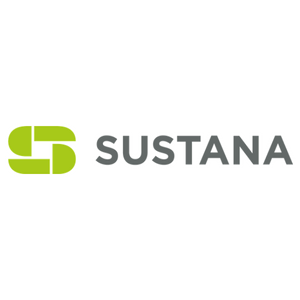
3:00 pm - 3:20 pm ET
Coca-Cola’s Sustainability Journey, Refreshing the world, Making a Difference
Speakers
Bruce Karas
Coca-Cola North America
In today’s world, companies and brands have to respond to rapidly changing consumer preferences and expectations. As we strive toward our World Without Waste goal to collect and recycle the equivalent of 100 percent of our bottles and cans and to make our packaging with 50 percent recycled content by 2030, we know that we must also meet the changing needs of our consumers as they too look for brands that are more sustainable. The Coca-Cola Company’s global sustainability goals apply not just to the beverages the Coca-Cola Company makes and sells, but also to the broader impact that the product, the business and the value chain has on the local community and our environment. Ultimately we hope to create a better shared for the communities we serve.
3:20 pm - 4:00 pm ET
Networking Break with Exhibitors
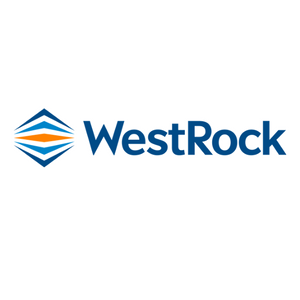
4:00 pm - 5:00 pm ET
TED Style Talk Series: Think Globally, Act Locally
Speakers
Dr. Mark Sanders
Austin Technology Incubator
Oliver Campbell
Dell
Chris Ripley
Smarter Sorting
Ken Snipes
Austin Resource Recovery
Austin is a hub for progressive thinking, bold initiatives, technology innovations and environmental trailblazers that operate both locally and on a global scale. What’s happening in Austin and how the contributions local stakeholders and organizations are making in regards to social investment; rethinking value from waste & recycled materials; startups and technology leaders working on hyper-scaling sustainable supply chains will be shared in this inspiring session.
4:00 – 4:15 pm | Stop Going in Circles: Mapping the Circular Economy Startup Ecosystem
It takes a village to raise a successful startup. Circular Economy is a relatively new field for startup investment which represents considerable technology and market risk to investors. A network of credible vetting resources is needed to help startups find viable pathways to market and to de-risk their offering to investors. In this session, we will explore the current landscape of Circular Economy startup resources and identify the gaps needing to be filled.
Dr. Mark Sanders, Director Circular Economy, Austin Technology Incubator
4:15 – 4:30 pm | The Journey to the Future of Packaging
This presentation looks at what is driving the momentum behind sustainable packaging and how that is translating into new packaging sustainability goals and innovation. Dell will share several packaging sustainability case studies, the results of their 2020 Packaging’ Legacy of Good goals and where they are headed with their new 2030 Progress Made Real packaging goals.
Oliver Campbell, Director Procurement & Packaging Engineering, Dell Technologies
4:30 – 4:45 pm | What We Don’t Know Will Kill Us, the Data in Front of Our Eyes That We Fail to Collect
Chris Ripley, CEO, Smarter Sorting
4:45 – 5:00 pm | Government’s Role in Innovation
The City of Austin has a goal to make Central Texas the most vibrant circular economy in the country, where every material is put to its highest and best use within the local economy at each stage of its life cycle. Innovation in consumption and production of materials is in line with circular economy principals and an opportunity to transform existing systems. Government can play a key role to create enabling conditions that bring about change.
Ken Snipes, Director, Austin Resource Recovery

 Mar 31st
Mar 31st
6:00 pm - 8:00 pm ET
Opening Reception at the Blanton Museum of Art
Experience the intersection of art, culture and history at our opening reception hosted by Amazon & Whole Foods at The Blanton Museum of Art! Located on the campus of the University of Texas in Austin, the Blanton Museum of Art is the primary art collection for the city of Austin. With nearly 18,000 works in the collection, the Blanton showcases art from across the ages, from ancient Greek pottery to abstract expressionism. With a year-round schedule of temporary exhibitions, art lovers are sure to discover new and old favorites at the Blanton.


Space Is Limited
Please select this add-on at registration checkout to attend7:00 am - 5:00 pm ET
Registration and Check-In Open
7:15 am - 8:30 am ET
Breakfast with Exhibitors
Kickstart your morning with breakfast in the Grand Ballroom where PepsiCo will be showcasing some of their food breakfast items!
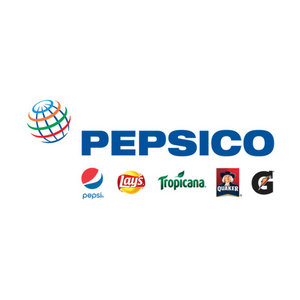
8:30 am - 9:00 am ET
8:40 am - 9:25 am ET
Wednesday Plenary: Purposefully Doing
Speakers
Adam Minter
Bloomberg Opinion
Amidst a sea of announcements, goal setting of sustainability targets, this session zeroes in on a selection of companies, organizations and forerunners making deliberate and intentional efforts to change fundamental practices.
9:00 – 9:25 am | Opening Keynote: Stuff – The Hidden Borderland of Waste, Recycling and Reuse
In his talk, Minter will explain the circumstances that led him to spend years reporting in thrift stores and flea markets and how and why re-use and repair have emerged as major social movements to address a rising tide of secondhand stuff. Using his signature method of narrative storytelling and references to popular culture, Minter will merge his personal experiences and observations with globalizing trends to illuminate this emerging frontier in recycling and waste management.
Adam Minter, Author Secondhand and Junkyard Planet and Columnist, Bloomberg Opinion
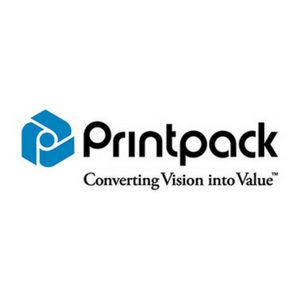
9:25 am - 10:25 am ET
TED Style Talk Series
Speakers
Steve Crawford
Eastman
Carl Joachim
ePac Flexible Packaging
9:45 – 10:00 am | Purposefully Recycling: Rethinking Traditional Systems
Many major brands now have sustainable packaging goals. But how will they meet them? Current recycling systems have limitations. When people think “recycling” and “recycled content,” their first thought is about traditional, mechanical recycling. It’s time to move out of the past and into the modern age of chemical recycling. This move requires a change to technology, transportation, and logistics systems so that the materials going to landfill — or the environment — actually get to chemical recycling facilities. Eastman’s CTO will speak about how the company is tackling these issues right now, along with the processes and materials needed to help major brands innovate packaging materials and meet sustainability goals, sharing real-world examples.
Steve Crawford, Senior Vice President, Chief Technology & Sustainability Officer, Eastman Chemical Company
10:00 – 10:15 am | Digital Printing’s Role in Sustainable Packaging
Hear ePac Flexible Packaging discuss sustainability advantages available through digital printing. From energy consumption and ozone emissions to waste reduction, digital printing processes. Among the advantages that digital printing presents, is also the ability to use a digitally-based solution to bypass MURFs while rewarding brands and consumers for sustainable behavior.
Carl Joachim, CMO, ePac Flexible Packaging

9:25 am - 9:45 am ET
Keynote: Purpose and Sustainability – Perspectives From An Investor
Speakers
Ray Cameron
BlackRock
In his keynote presentation, Ray Cameron will share how BlackRock engages with companies on the topics of purpose and sustainability as well as insights into BlackRock’s approach to corporate governance and stewardship in support of long-term value creation. This will include highlights from Larry Fink’s Letter to CEOs, a review of Investment Stewardship engagement priorities, the anatomy of an engagement, and how this information informs our decisions during proxy voting season.

10:15 am - 10:30 am ET
Interview with Jon Stephens, Avangard Innovative
Speakers
Jon Stephens
Avangard Innovative
Nina Goodrich
Sustainable Packaging Coalition

10:25 am - 11:00 am ET
Networking Break with Exhibitors

11:00 am - 11:45 am ET
Fireside Chat: Sustainable Packaging Uprising in the Fashion Industry
Speakers
Adam Gendell
Sustainable Packaging Coalition
Kathleen Rademan
Fashion for Good
Kate Daly
Center for the Circular Economy at Closed Loop Partners
Kelsey Towne
prAna
Sustainable packaging considerations have spread far and wide from the ground zero of fast-moving consumer goods, and as the movement has expanded to find relevance with nearly every product sector, there are important lessons to be learned. This session focuses on the unique perspective of the fashion and apparel industry and its special set of challenges and opportunities. Hear from several experts who are tackling sustainable packaging and learn what drives their goals, strategies, and ways of thinking.

11:45 am - 12:10 pm ET
Technology, Forests, and Climate Change
Speakers
Dr. Christopher Oswalt
USDA Forest Service Forest Inventory & Analysis (FIA)
Technology is already transforming the way we understand and can have a meaningful impact on fighting climate change. Part of this work is a better understanding of our forests and we can leverage these incredible tools and insights that advances in technology affords us. For packaging professionals, this means understanding a key source material in a new way and using this knowledge to help meet sustainability goals.

12:10 pm - 12:30 pm ET
The 2020 Zero Deforestation Commitments
Speakers
Ignacio Gavilan
Consumer Goods Forum
The 2020 Zero Deforestation Commitments: An Update from the Consumer Goods Forum on the progress and actions towards these commitments

12:30 pm - 2:00 pm ET
General Lunch
12:30 pm - 2:00 pm ET
Birds of a Feather Lunch
Speakers
Tim Bohlke
Avery Dennison
Jeff Loth
Microsoft
Olga Kachook
Sustainable Packaging Coalition
Tom Pollock
Sustainable Packaging Coalition
Michael Manney
Packaging Corporation of America
Kathleen Rademan
Fashion for Good
Lauren Rowell
Sustainable Packaging Coalition
Join our Executive Committee and SPC staff in lively conversations around a specific topic of interest. Please email olivia.vermooten@greenblue.org to reserve your spot.
Table 1 – (FULL) Tim Bohlke, Avery Dennison: Plastic packaging legislation in the US & around the world, and the role of NGO partnerships to address plastic waste recycling
Table 2 – (FULL) Tristanne Davis, SPC & Jeff Loth, Microsoft: Exploring Packaging that Balances Product Protection with Sustainability
Table 3 – (FULL) Olga Kachook, SPC: The Landscape of Compostable Packaging Applications and Best Practices
Table 4 – Tom Pollock, GreenBlue & Michael Manney, Packaging Corporation of America: Trends & Drivers in Paper Recovery
Table 5 – Kathleen Rademan, Fashion for Good: The Role of Innovation in Moving Towards Sustainable Fashion
Table 6 – (FULL) Lauren Rowell, SPC: Communicating Sustainability

2:00 pm - 2:55 pm ET
Panel: From Farm to Shelf
Speakers
Packaging in the produce aisle has an important job of protecting the product throughout the supply chain all the way from farms and manufacturing plants to the shelf and ultimately the consumers’ table. Most importantly, it has the huge job of preventing food waste. With recent consumer hyper awareness in used plastic packaging, this is an area where plastic packaging has come into question. In this session, we will hear from food manufacturers, packaging converters, key stakeholders and retailers on a balanced approach and on their role in deploying packaging innovations in this sector.
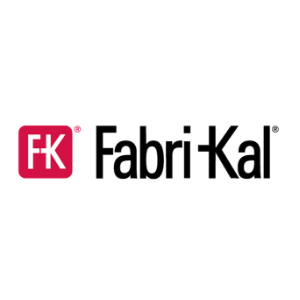
2:00 pm - 2:45 pm ET
Presentations: Goal Setting
Speakers
Olga Kachook
Sustainable Packaging Coalition
Matthew Wright
Specright
2:00 – 2:15 pm | Getting Started with Goal Setting
Has your company set packaging goals? Are you drafting goals, and want to know how to set yourself up for success? In this short introduction to goal setting, we’ll look at the specific elements of goals and how they differ from public commitments. We’ll explore some of the key motivations for creating public and internal goals, as well as regional and global goals. We’ll also share some of today’s most important regulatory and voluntary frameworks related to goal setting.
Olga Kachook, Project Manager SPC, GreenBlue
2:15 – 2:45 pm | Turning Packaging Sustainability Goals Into Reality
In response to consumer demand and regulatory trends, companies are increasingly relying on packaging departments to lead the charge on sustainability. With 86 percent of companies on the S&P 500 publishing sustainability reports in 2018, there’s pressure to define and report progress on packaging sustainability goals. However, many packaging departments don’t have the DNA-level data needed to take action. In fact, most companies still manage specifications through email, spreadsheets, or outdated systems. This results in limited visibility into sourcing for packaging departments and presents a huge hurdle for moving forward on goals like recycled or bio-based content.
In this session, you’ll learn how packaging departments can put together an actionable plan to benchmark, take action, and report on sustainability progress to turn packaging sustainability goals into reality. You’ll also learn why technology will become the new norm when it comes to achieving and reporting on sustainability goals.
Matthew Right, Founder & CEO, Specright
2:00 pm - 2:55 pm ET
Panel: Key Partnerships in Technology Development, How Petrochemical Companies are Key to Making Chemical Recycling Circular
Speakers
Adam Gendell
Sustainable Packaging Coalition
Dr. Bob Maughon
SABIC
Jon Timbers
American Styrenics (AmSty)
Joseph Vaillancourt
Agilyx Corporation
Johnny Combs
New Hope Energy
Heikki Färkkilä
Neste
Lauren Versagli
Plastic Energy
Technologies that can transform plastic packaging back into virgin-like plastics and other upstream materials will likely need partnership from incumbent petrochemical companies to grow and scale. These partnerships and offtake agreements are key to finding investors and ensuring that we can return plastic waste into material supply chains. Petrochemical companies are just beginning to demonstrate their commitments to more circular supply chains. This session will explore how these partnerships are getting done, through case examples. Participants will discuss: how they’ve collaborated on technology development and process/pre-process improvements, how much investment / alignment was needed to execute the partnership, and what the potential is for a technology and new source of feedstock to make its way into the traditional plastics supply chain.
2:00 pm - 2:55 pm ET
Panel: Completing the Package – Inks, Adhesives and Coatings
Speakers
Nina Goodrich
Sustainable Packaging Coalition
Jay Bolus
MBDC
Tyler Matusevich
Director, Sustainability
Dr. Clay Kellam
Henkel
Robert O’Boyle
Sun Chemical
Brian Glasbrenner
NatureWorks
Inks, adhesives and coatings play an important role in packaging: they dress, serve as vehicle to convey a message and identity, and add functionality and elements of performance for diverse applications. They also play a significant role in elevating a package’s fate in terms of recovery. An increased recyclability and a decrease in environmental impacts and material health issues are key factors taken into consideration and key stakeholders at the forefront of innovation in the space will share their latest projects as well as how they see their role as part of packaging sustainability.
2:00 pm - 2:55 am ET
Panel: Film Recovery, Current and Changing Landscape in Policy and Market Needs
Speakers
Elizabeth Biser
The Recycling Partnership
Susan Bush
Circular Matters
Philip Rozenski
Novolex
Jon Stephens
Avangard Innovative
Jennie Romer
Surfrider Foundation
What is the current landscape for plastic film packaging policy? How does policy impact an existing and growing recovery system? How do you avoid unintended consequences? How can policy help recycling systems? Bans, taxes, fees, regulation, recycling and residents — when talking about policy and packaging, it can raise more questions than can be answered in 280 characters or less. These experts from across the value chain will dig into these questions and more.
2:25 pm - 2:45 pm ET
Presentation: Upcycling Agroindustry Byproducts for Biomaterials Development
Speakers
Ana Laborde
BioSolutions
Ana will share the experience on The Agave Project and The Heineken Barley Cup project where BioSolutions is harnessing agave bagasse, a byproduct of the Tequila industry, and barley husk, a byproduct of the beer industry to create biomaterials that can be re-used by consumers in these industries through circular economy processes
2:45 pm - 3:00 pm ET
Presentation: Sustainable Packaging & Brand Identity Initiative
Speakers
Paul Nowak
GreenBlue
In an effort to educate and continually push forward sustainability and its impact on consumer package goods, Quad has cowritten multiple studies to understand consumers relationship with sustainable packaging.
In the most recent and third iteration of the study, the same logo and education sheet were used, but two new variables were added; the faux products in studies one and two were swapped out for well-known national brands and a coupon was added that incentivized consumers to consider different products not in the study that highlighted sustainability.
The data from this new study will be revealed at SPC Impact in Austin, TX and will provide insight if national brand awareness and sustainability has any bearing on the consumer.
2:50 pm - 3:45 pm ET
Fireside Chat: The Next Generation – Challenging the status quo in the sustainable packaging industry
Speakers
Lauren Phipps
GreenBiz
Megan Robison
Printpack
Katherine Roop
Mitsubishi Chemical Performance Polymers
Lizzie Horvitz
Muuse
Lauren Rowell
Sustainable Packaging Coalition
Danielle Joseph
Closed Loop Partners
This interview-style session will be centered around the newer generation entering the sustainable packaging and packaging industries: their insights on leveraging their passion for sustainability, on how to become a change agent in your organization and the greater packaging industry and how to balance putting your ideas forward, building a network and gaining credibility as a leader in sustainable forward thinking. Panelists will also discuss how to balance personal goals with the business’ bottom line and objectives. These ideas and experiences center around being the best at what you do now, finding a champion/mentor within your organization, and being adaptable to the industry’s long term goals.
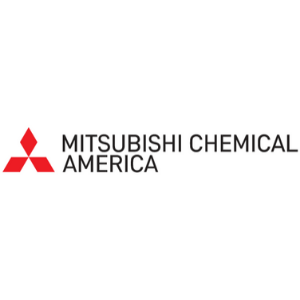
3:00 pm - 3:30 pm ET
Presentation: The Top Factors When Considering Sustainable Food Packaging… Survey Says…
Speakers
Heather Goodman
Sealed Air
It’s no secret that food waste has environmental, economical, and even ethical consequences. But those costly realities have taken a backseat to a growing global concern about plastics waste. Food retailers are scrambling to meet the increasing consumer demand for more sustainable packaging, but they are struggling to find solutions that won’t increase their costs or their carbon footprint. Tough decisions need to be made, but how can retailers know they’re making the right ones? Market insight expert Heather Goodman will share recent highlights from research conducted with consumers, retailers, and food brands – all of whom have passionate opinions (and some contradicting perceptions) about food packaging. These surveys reveal which sustainability trade-offs consumers are prepared to accept, which ones are deal breakers, and which ones they are unknowingly ignoring.
3:00 pm - 3:45 pm ET
Panel: Redefining Recycled Content with Innovative Solutions in a World of Chemical Recycling
Speakers
Ellen Martin
UC Berkeley
Holli Alexander
Eastman
Laura Thompson
Sustainable Packaging Coalition
Robert Flores
Berry Global
Victor Zapata
Dow
Prapti Muhuri
American Chemistry Council
Recycled content standards need to evolve with the expansion of new technologies such as chemical recycling. We are entering an era where plastic is not always plastic and tracing materials at the molecular level adds complexity to manufacturing supply chains. In this session we will discuss innovative approaches such as GreenBlue’s Recycled Material Standard (RMS) and EMF’s recent white paper on mass balance approaches to track material flows. Attendees will get an overview of the different approaches and practical real-world application from several perspectives. Panelists will discuss the different approaches and implications for brands, packaging manufacturers, petrochemical companies, and recyclers.
3:00 pm - 3:45 pm ET
Presentation: The Role of Analytics on Sustainable Packaging
Speakers
Jeff Loth
Microsoft
Prashant Jagtap
Trayak
In this session attendees will learn the role that business intelligence and data analytics to assess their entire packaging portfolio, along with production and sales data to get valuable insights to increase their projects’ impact.
Participants will leave this session with insights on:
- How does your package perform against weight and volume efficiency metrics?
- How much package waste is being created in your business?
- Where are the opportunities for maximum improvements?
- How to achieve efficiencies in material usage?
- Which sustainable packaging strategies make the most sense for your company?
3:00 pm - 3:45 pm ET
Presentation: The New Guide to Future Recyclability for How2Recycle
Speakers
Kelly Cramer
Sustainable Packaging Coalition
This presentation will provide an overview to the then-to-be-newly released Guide to Future Recyclability for How2Recycle, that outlines how How2Recycle members can think about the future recyclability of their tougher-to-recycle packages. Topics will include what to keep in mind and expect if you want your packaging to become more recyclable, what are the steps on the path to get a better How2Recycle label, and commonly encountered challenges for companies on these journeys.
3:00 pm - 3:45 pm ET
Presentations: Next Markets for Films, Case Studies for End Uses
Speakers
3:00 – 3:15 pm | Film to Film Recovery, Recycling and Production
With the ever increasing need to recycle more film into film based products, Revolution shares their efforts on being both a recycler and manufacturer. This presentation will outline how they have been able to do it and what the future looks like.
Cherish Miller, Vice President Marketing & Sustainability, Revolution
3:15 – 3:30 pm | Challenges on End Use Markets for Low Value Film
In this presentation we will discuss the sources of low value film and the current challenges with recycling as well as present and future end use applications.
Brian Gaughan, EVP Business Development, IntegriCo
3:30 – 3:45 pm | Thinking Outside the Circle.. Creating Novel Materials and Bigger Markets for Post-Use Plastics Through Chemical Recycling
A single-use plastic (SUP) bag has an estimated lifespan of 12 minutes. A full circle can potentially be created by mechanically recycling that discarded plastic bag to make another film product. If successful, another 12 or 20 minutes of usefulness can be derived from the resource. The circle achieved by traditionally recycling film has stringent quality requirements and can typically be completed a limited number of times before plastic quality is diminished and insufficient for further processing. What if we could expand the useful lifespan discarded films and other discarded SUP items to 20 years instead of 20 minutes? The novel chemical recycling technology designed by GreenMantra does exactly that. This technology takes advantage of the integrity of the plastic molecule to create new high-value materials that are used as performance additives in various industrial applications. Some of the largest use cases are in construction infrastructure applications that have useful lifespans of 20-50 years.
Christy Sapp, Global Market Development Director, GreenMantra Technologies Ltd.
3:45 pm - 4:15 pm ET
Networking Break with Exhibitors
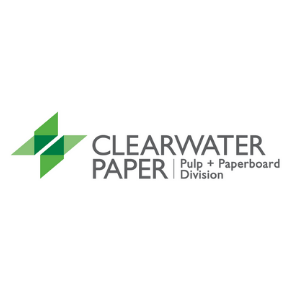
4:15 pm - 5:15 pm ET
Circular Solutions: ReVerse Pitch Panel
Speakers
Madelyn Morgan
Austin Resource Recovery
Daniel Kietzer
US Business Council for Sustainable Development
Michael Strong
re:3D
Learn how Austin is helping businesses give byproducts a second life through entrepreneurship, through two Austin original program contributing to the City’s zero waste efforts: [Re]Verse Pitch and Materials Marketplace. [Re]Verse Pitch is a social entrepreneurship competition, where businesses take the stage to pitch their byproduct materials to local entrepreneurs, who then have 6-8 weeks to create a new business model using those surplus materials. Hear from competition organizers, City of Austin and Materials Marketplace and from competition organizers and past winners, re:3D and Polysmart. See what it takes to create a winning idea with “waste,” and how to bring a ‘Reverse Pitch’ to your community.
4:15 pm - 5:15 pm ET
Panel: Speeding the Growth of Advanced Recycling Technologies to Achieve Circular Supply Chains for Plastics – The Story of rPET
Speakers
Ellen Martin
UC Berkeley
Ron Khan
PepsiCo
Anne-Cécile Colin
Carbios
Roger Zellner
Rogue Zebra Consulting
Demand for the highest quality of recycled plastics is growing as brands’ commitments to use recycled content start to hit their supply chains. This trend is clearest for PET. Significant investments are being made in decomposition technologies that have the potential to create virgin-like PET from low-grade post-consumer material. We’ll hear from a brand owner, a PET producer, and technology providers about their progress and forecast for the future of rPET, and the role that advanced technologies play among current mechanical recycling infrastructure.
4:15 pm - 5:15 pm ET
Panel: Next Markets for Film & Flexible Packaging
Speakers
Laura Thompson
Sustainable Packaging Coalition
Alison Keane
Flexible Packaging Association
Dave McLain
Printpack
Hendrik Dullinger
PreZero
Flexible packaging markets continue to grow across a wide range of product categories. But is the effort to recycle and find the next markets for these materials keeping up? Film and flexible packaging materials pose unique challenges. Brands love the features and benefits – consumers love the convenience– but very few Material Recovery Facilities (MRF’s) can sort or find markets for film. Join this panel session to hear how industry leaders are connecting the dots and developing sustainable solutions. Learn about sourcing strategies, the latest in technology for recyclable pouches, and new solutions using recycled content in multi-layered structures.
4:15 pm - 5:15 pm ET
Panel: Tilting the Balance for Reusable Packaging
Speakers
Olga Kachook
Sustainable Packaging Coalition
Michael Newman
CEO
Anthony Rossi
Loop Global Holdings
Brian Bauer
Algramo
Lisa Zwack
Kroger
Lindsey Hoell
Dispatch Goods
Ashleigh Ferran
Keko Box
A number of high profile reusable packaging solutions and programs have been deployed in the last year. In this session leading groups at the forefront of these initiatives will discuss the learnings, challenges, consumers’ acceptance and what in their perspective, will be the tipping point for mainstream implementation.
4:15 pm - 5:15 pm ET
Panel: Targeting the Tube
Speakers
Kelly Cramer
Sustainable Packaging Coalition
Stacey Luddy
More Recycling
Kate Davenport
Eureka Recycling
Eadaoin Quinn
EFS-plastics
Sarah Dearman
The Recycling Partnership
Khosrow Hallaji
Envision Plastics
Kelly Cramer, lead of the How2Recycle program, will lead a panel on Targeting the Tube, exploring how the plastic tube could be an emblem for multiple packaging formats. In this session attendees will learn more about the research and recent packaging innovation to increase recyclability of tubes as well as the changes needed in collection, sortation, and recovery to enable a path to recyclability.
 Apr 1st
Apr 1st
5:15 pm - 6:15 pm ET
Happy Hour
Join us for a Happy Hour sponsored by PreZero!
 Apr 1st
Apr 1st
6:30 pm - 8:30 pm ET
Evening Mixer: Still Austin Distillery
Stimulate your senses at Still Austin Distillery for an evening of whiskey tasting and small bites hosted by UPM Raflatac! Still Austin CEO/co-founder Chris Seals will give a brief talk to mixer attendees about their sustainability journey at the distillery. Still is a homegrown grain-to-glass distillery in the heart of Austin, which uses only Texas-grown grains. They are a ragtag collection of whiskey obsessives, gin enthusiasts, sustainability wonks, and good friends who nerd out about the theory of élevage and heirloom grain varieties. After distillation, they send the spent grains back to the farmers to feed their livestock and amend their soil—bringing the entire process full-circle and back to its origins.
Transportation will be provided from AT&T Hotel & Convention center to Still Austin – the bus will leave the hotel promptly at 6:10 pm. At the end of the mixer, feel free to make your way back to the AT&T Hotel & Conference Center, or stick around and explore some of the other Austin hot spots next door!
You may only add ONE Wednesday evening activity to your registration.


Space Is Limited
Please select this add-on at registration checkout to attend Apr 1st
Apr 1st
6:30 pm - 8:30 pm ET
Evening Mixer: Scholz Beer Garten
We invite you to travel back in time at the famous Scholz Beer Garten for our mixer hosted by Quad! Scholz is the oldest restaurant and live music venue in Texas. Established in 1866, they’ve been serving the Austin community for almost a century and a half. Over the years it has grown with the Austin community, from hosting a celebration for the University of Texas football team’s first undefeated season in 1893 to being honored by the 1966 Texas legislature with House Resolution #68, which recognized Scholz Garten as “a gathering place for Texans of discernment, taste, culture, erudition, epitomizing the finest tradition of magnificent German heritage in our State.” Today Scholz Garten remains a favorite spot for UT fans, music lovers, and families to enjoy traditional German food, raise their glasses and say Prost!
Please click “Reserve” to request a mixer pass if you would like join us at this traditional German hot spot with a Texas twist!
*Competitors will not be allowed to join this evening mixer.


Space Is Limited
Please select this add-on at registration checkout to attend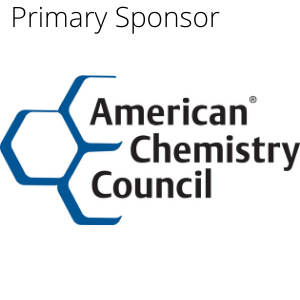 Apr 1st
Apr 1st
6:30 pm - 8:30 pm ET
Evening Mixer: Hotel Ella
Join us at Hotel Ella, an Austin architectural icon, for a classic evening mixer hosted by American Chemistry Council! Located in downtown Austin and walking distance to the University of Texas campus, Hotel Ella is a stylish boutique hotel housed in the historic Goodall Wooten House, one of Austin’s original landmark estates. Constructed in 1900, the Greek revival-style mansion underwent an extensive renovation in 2013, and now offers the perfect balance between modernity and a rich history rooted in the fabric of the neighborhood and the university. Hotel Ella features beautifully designed outdoor and indoor spaces including 47 guest rooms, a cabana-lined pool, and a wrap-around veranda overlooking the front lawn.
You may only add ONE Wednesday evening activity to your registration.


Space Is Limited
Please select this add-on at registration checkout to attend7:15 am - 4:00 pm ET
Registration and Check-In Open
7:30 am - 8:30 am ET
Breakfast with Exhibitors
8:30 am - 9:30 am ET
The State of Recovery in the Great State of Texas
Speakers
Adam Gendell
Sustainable Packaging Coalition
Kerry Getter
Balcones Resources
Jordan Fengel
State Texas Alliance for Recycling (STAR)
In this session we will learn how the landscape for recycling, recovery infrastructure and organics and composting infrastructure looks like in Texas; the success stories, case studies and challenges at the state, regional and local level and what brands and retailers need to consider about their packages recovery in the region.
8:30 am - 9:30 am ET
The Next Frontier: Carbon and Climate Positive Packaging
Speakers
Sustainable Packaging expectations, solutions and goals are evolving from concepts such as optimization, design for recyclability, renewable materials and recycled content to packaging that is designed to be net neutral or carbon positive. In this session, system changing programs will be showcased, as well as new concepts of what these forward thinking concepts mean.
8:30 am - 12:00 pm ET
Workshop: Building the U.S. Plastics Pact
Join the Ellen MacArthur Foundation, The Recycling Partnership, the Sustainable Packaging Coalition, and the World Wildlife Fund in this important half-day workshop designed to refine and reinforce the foundational plans of the U.S. Plastics Pact. Learn about the Plastics Pact network and how the ideals of the New Plastic Economy can be applied to the unique opportunities and challenges around furthering plastic packaging circularity within the U.S.. Bring your ideas and prepare to think big as you participate in special roundtable discussions around the execution of the U.S. Plastics Pact and the activities needed to achieve high levels of aspiration in bringing the circular economy to life.Participation in this workshop is open to SPC Impact attendees and non-attendees. There is no fee to attend the workshop, but SPC members must register using the code usplasticspact-spcmember and non-members must register using the code usplasticspact-nonmember. If you are already registered to attend SPC Impact and wish to attend this workshop, please email spcinfo@greenblue.org to indicate your plans to participate.
8:30 am - 9:30 am ET
Panel: Finding Common Ground in Paper and Plastic
Speakers
Tom Pollock
Sustainable Packaging Coalition
Jim Caudill
WestRock
Suzanne Shelton
Shelton Group
Bill Barlow
Printpack
Michael Browne
Sappi
Markku Hämäläinen
Kotkamills Oy
Nicole Whiteman
NatureWorks
Viral videos, mounting consumer pressure and a growing number of local, state and international actions focused on curbing plastic pollution have positioned this sustainability trend front and center for many companies. But achieving “sustainability” is not a simple question of paper or plastic. In this session, our panelists will discuss the considerations required for plastic replacement, as well as discuss scenarios in which plastic packaging is preferred. We will build off our successful SPC Advance Panel, “Looking for the Paper Option”. Come ready to bust myths, visualize material trade-offs and participate in a lively discussion around material choice and packaging solutions.

9:35 am - 10:30 am ET
Panel: Circular Systems Examples for Food Services Packaging Recovery
Speakers
Natha Dempsey
Foodservice Packaging Institute
Rhea Hale
WestRock
Renée Yardley
Sustana Group
Barak Bright
Clearwater Paper
In this session we will showcase examples of circular systems in food service packaging formats and materials in terms of their recovery. Speakers will share their perspectives and experiences on the opportunities and challenges when it comes to recovery considerations, such as ease of recovery, contamination, amount of material available, the importance of partnerships, consumer education and building relationships with material recovery facilities.

9:35 am - 10:30 am ET
Panel: Balancing Your Packaging Strategy – When Are Bioplastics the Right Materials for Your Package?
Speakers
Olga Kachook
Sustainable Packaging Coalition
Ana Laborde
BioSolutions
Francois de Bie
Total Corbion PLA
Stephanie Love
Haney
In this session we will highlight the aspects that have to be considered to determine when a bioplastic is the best materials for your package.
9:40 am - 10:30 am ET
Presentations: MRF Tech, Glass and Metal Recovery
Speakers
Matt Todd
RRS
Laura Hennemann
Strategic Materials
9:40 – 10:00 am | The Impacts of MRF Technology on Packaging Recovery
Packaging is a primary target for recovery from the residential sector. MRF Technology is quickly advancing to aid improved recovery and provide a better understanding of the material stream. Come to this session to get an overview of artificial intelligence and machine learning and how these advancements are positively impacting the recycling industry.
Matt Todd, Senior Consultant, RRS
10:00 – 10:30 am | Designing Recyclable Glass Packaging
Designing recyclable glass packaging Is your product packaging fully recyclable? Learn the best practices to ensure your packaging is easily recycled by consumers. Shrink wrapped versus powder coated? Glass chemistry and labeling is all covered. Understand the myths for recycling and the preferences by the processors to ensure your package is sustainable, recyclable and responsibly designed.
Laura Hennemann, Vice President, Marketing & Communications, Strategic Materials
10:30 am - 11:00 am ET
Networking Break with Exhibitors
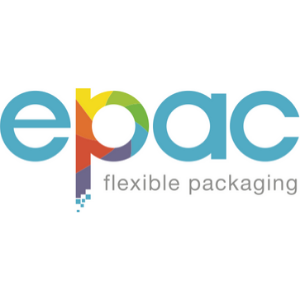
11:00 am - 11:30 am ET
Forests in Focus Version 1.0: Using Business Intelligence and Geo-analysis for Sustainable Sourcing
Speakers
Tom Pollock
Sustainable Packaging Coalition
Forests in Focus has added a number of new features and updates to help companies better understand their regions of sourcing and find conservation opportunities in the very woodbaskets where they source. In this session we will be looking at the brand new Business Intelligence dashboard that allows powerful new insights into over 500 mills and wood baskets in the United States.
11:00 am - 12:00 pm ET
Yes We Can! Minimizing Beverage Can Loss at the MRF
Speakers
Caroline Cox
GreenBlue
Scott Breen
Can Manufacturers Institute
Joaquin Mariel
Balcones Resources
Curt Wells
The Aluminum Association
If the consumer places a beverage can in the recycling bin and it’s hauled away to the material recovery facility (MRF), one would hope it is not at that point a beverage can is removed from the can’s existing circular system. Unfortunately, there are analyses showing between 1 in 3 and 1 in 6 beverage cans are missorted at the MRF. This could be for a variety of reasons including flattened cans getting mixed in with the paper, cans with shrink sleeve labels getting mistaken for plastic, and all cans not being separated out by an eddy current. Cans are important to appropriately sort because the aluminum in cans is able to be recycled infinitely and also because it is such a valuable material. One study found that cans made up 1% by weight of the recycling stream but 17% of the revenue for a typical MRF. With MRF revenues down around 50 percent post-China’s national sword, that revenue is critical capital MRFs need to continue operating and to invest in what is needed to capture all the cans and also accurately sort the other material types. In this session, we’ll explore how beverage cans can be designed to promote proper sortation, what MRF infrastructure would help with capturing beverage cans, and how capturing more beverage cans is in the MRF’s interest given its relatively high value.
11:00 am - 12:00 pm ET
Panel: Expanding Packaging Recovery on a Regional Scale
Speakers
Kim Holmes
4R Sustainability
Jon Timbers
American Styrenics (AmSty)
Mike Centers
Titus MRF Services
Scott A. Byrne
Carton Council North America
As new investments are being made in the domestic recycling system, it’s imperative that we find methods for better sorting and recovery of different forms of packaging to move to those emerging domestic markets. The Pacific Northwest Secondary Sorting Demonstration Project aimed to test the potential of a regional, secondary sorting model to further recover value from materials leaving material recovery facilities (MRFs), from container line residuals currently heading to landfill as well as mixed plastics, which are currently of no value or negative value in today’s market. In this session, project funders will share learnings from the project and discuss how these findings could shape the future sorting capabilities and expand the range of products recovered for recycling.
12:00 pm - 1:30 pm ET
Lunch
1:30 pm - 2:30 pm ET
2020 Protective Packaging Innovation Challenge: Finalist Presentations and Interview
Speakers
Peter Schelstraete
Ubuntoo
Sam Boex
Flexi-Hex, Ltd.
Will Boex
Flexi-Hex, Ltd.
James McGoff
Temperpack
Michael Newman
CEO
Protective packaging is critical to ensure the safe and secure transport of goods. However, there can be significant tradeoffs between performance, economics and sustainability. The SPC’s Protective Packaging Design Challenge invited start-ups, individual or university entrepreneurs to submit their innovations in protective packaging materials and systems that embody excellence in performance as well as other sustainable packaging pillars. This is SPC’s second entrepreneurs challenge, launched in partnership with Ubuntoo. A group of finalists will be selected to join us at SPC Impact and present their winning innovations on stage to event attendees.
2:30 pm - 2:55 pm ET
Keynote: Shifting Producer Responsibility for Plastic Packaging Through Policy
Speakers
Michael J. Sangiacomo
Recology
Recology has been in the business of collecting, sorting, and reselling discarded materials for nearly a century. The cornerstone of success in the recycling business is the ability to collect clean material to be processed, recovered, and transformed into new products. In general, taxpayers have shouldered much of the cost of recovering consumer goods, showcasing a clear preference for making second use of these materials rather than sending them to landfill. However, over the past few years, global environmental policies have identified packaging (especially single-use plastic packaging) for its role in contaminating and endangering the current recycling system, as well as polluting marine and ocean environments.
Policies and investments in recycling infrastructure are needed to effectively respond to the changing nature of the materials found in the marketplace, and producers and manufacturers of packaging materials have a big role to play. These changes will require creativity, innovation, and most importantly, cooperation.
2:55 pm - 3:55 pm ET
Closing Keynote: Transforming Imagination & Vision into Tangible Action
Speakers
Climate change, environmental sustainability challenges, resources depletion, pollution and recovery issues look like, more often that not, like huge, insurmountable problems. While there is not one perfect solution to address them all, there are stakeholders working in different spaces, geographies and markets working passionately and more importantly strategically to address them. In this session, we will hear how entrepreneurial innovation; targeted investment; strategic new infrastructure; meaningful commitments; bold policy and rethinking the purpose of organizations are making an impact on addressing the big global issues.
3:55 pm - 4:10 pm ET





































































































